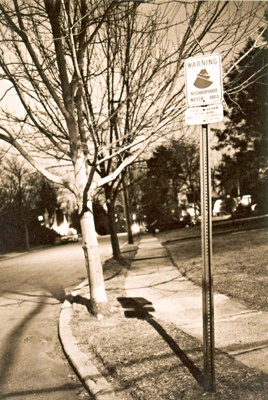All Nonfiction
- Bullying
- Books
- Academic
- Author Interviews
- Celebrity interviews
- College Articles
- College Essays
- Educator of the Year
- Heroes
- Interviews
- Memoir
- Personal Experience
- Sports
- Travel & Culture
All Opinions
- Bullying
- Current Events / Politics
- Discrimination
- Drugs / Alcohol / Smoking
- Entertainment / Celebrities
- Environment
- Love / Relationships
- Movies / Music / TV
- Pop Culture / Trends
- School / College
- Social Issues / Civics
- Spirituality / Religion
- Sports / Hobbies
All Hot Topics
- Bullying
- Community Service
- Environment
- Health
- Letters to the Editor
- Pride & Prejudice
- What Matters
- Back
Summer Guide
- Program Links
- Program Reviews
- Back
College Guide
- College Links
- College Reviews
- College Essays
- College Articles
- Back
Family Traditions
Most families vary greatly from one to the next, differing in size, personality, and traditions. Sometimes they get along very well and other times war breaks out, but no matter what, they share a special bond that runs through their veins. I am extraordinarily fortunate to have a very large and very loving family. There is a rather large age gap between each of my siblings (thirteen years separating my oldest brother and I) and yet we still get along remarkably well.
Westcott World. This phrase is used to imply that has someone lost track of their surroundings or is staring vaguely into the void and it is most often expressed in a mocking tone. For example, while trying to gain the attention of someone who has zoned out, the entire family will chime in with gradually accelerating and synchronized chants of “Westcott World” until the person lost in their own thoughts is abruptly brought back to reality. The origin of this phrase surrounds my brother Kyle, whose middle name is Westcott. He would often space out during family dinner or game night, which we found to be both comical and slightly frustrating. Naturally, that means that this phrase is often used at his expense.
Reset the timer. This phrase suggests that someone who is prone to accidents has once again caused themselves some sort of minor damage. It was originally used by my oldest sister, Heather, in order to ridicule my klutzy younger self. Especially around the age of ten, I was constantly covered in little bruises and scratch marks from running into various items or spontaneously tripping and falling (an unfortunately common sight). Heather’s theory was that I could go no more than five minutes without causing myself harm. She decided to test that theory by setting a timer. Sure enough, every time that I received even a trivial injury, whichever family member was nearest would call out “reset the timer” so that she could keep track. As I have become older and grown out of my serious lack of coordination, we use this phrase as a light joke to gently harass each other for our blunders. While we are generally being sarcastic and even a bit cruel, we are also using the phrase to reminisce about a simpler, clumsier time.
Ice Cream. Seemingly common to the everyday joe, this two-word phrase means something more to my family than just a delicious frozen treat. When used with the correct inflection, and a slight flick of the wrist, it can be employed in place of the word “duh” or “obviously”. This custom began several years ago while watching a random episode of Dateline. In this particular episode, several groups of kids were approached by a stranger in an ice cream truck and invited inside as their parents observed from a hidden camera to see how they would react. One pair of kids invited into the truck was a young sister and brother duo. The sister was extremely hesitant, wary of what the stranger was up to, but her younger brother entered the truck without a second thought. When later asked to explain his careless actions, the brother simply replied “ice cream”, as if the reward of getting free ice cream was unquestionably worth the risk. We found his response to be so hilarious that it became tradition to mimic it on a regular basis.
Cousin Eugene. This phrase is often used when something is found to be completely random or inexplicable. For example, one might say “Oh, Cousin Eugene is up to it again” or “Must’ve been Cousin Eugene” while describing a peculiar event. This phrase came about one Christmas Eve about ten years ago. Traditionally, because my extended family consists of many people, we have everyone sit in a circle and one person reads the names and passes out the presents individually. That fateful Christmas Eve however, there was one gift whose label was completely illegible. We passed it around the circle time and time again but the closest anyone could get to deciphering it was as “From Cousin Eugene”. Who is this Cousin Eugene you ask? Well quite frankly I couldn’t tell you; probably because he doesn’t exist. We were all taken aback by this sudden and unknown addition to the family, but eventually we discovered that the poorly written scribble was meant to read as “From: Ellen”. Nonetheless, the memory of Cousin Eugene lives on in our everyday lives.
To the humdrum stranger these phrases probably come off as rather strange, but that’s okay. What matters is that it means something to my family, and that we can bond over that. We bond over the ridiculousness of life itself, and together it makes the hard days a little bit more bearable.

Similar Articles
JOIN THE DISCUSSION
This article has 0 comments.
